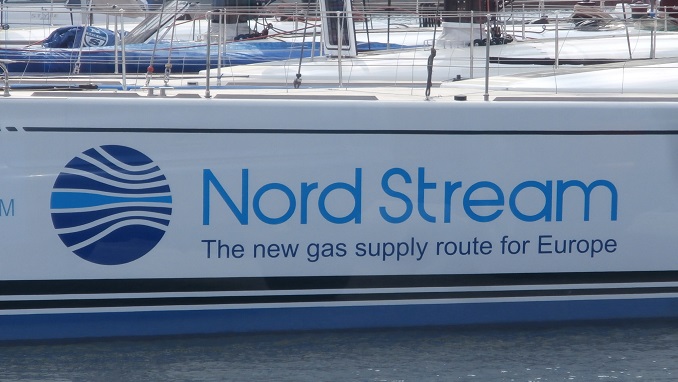The new German government headed by Angela Merkel, who has been elected to her fourth term as Chancellor plans to review its energy policy. The proposed move includes a drastic drop in gas purchases abroad, which is sure to affect Russia’s interests, Rossiyskaya Gazeta reports.
European experts estimate that within the next two years, the capacity of wind parks and solar batteries will reach 8 gigawatts. Similarly, plans are in store to build offshore wind farms and liquefied natural gas terminals.
However, even if these goals are attained, that could hardly pose a threat to the projects of Russia’s energy giant, Gazprom, in Germany.
Mario Mehren, Chairman of the Board of Executive Directors of Wintershall Holding GmbH, Gazprom’s partner, says that Russia is an important region for Wintershall and will continue to be so in the future.
“The claims by opponents of Nord Stream 2 look ridiculous and pointless. Germany is interested in receiving as much cheap gas as possible through various channels. That would be good for both customers and the industry,” Mehren said.
Meanwhile, Sergey Pravosudov, Director of the National Energy Institute, likewise pointed to Germany’s interest in the Nord Stream 2 project.
“The fundamental question Gazprom is asked is whether or not it is worth building new routes, if the Ukrainian gas transportation system is not 100-percent operational,” he said. “The problem is that Ukraine’s gas transportation system was built in the late 1960s. Everything needs to be modernized, and Ukraine has done nothing about this in recent years, although Russia has repeatedly suggested working jointly along these lines.”
“That’s why new routes are necessary, all the more so because Russian gas exports have grown by 50 billion cubic meters over the past four years, and this will continue to grow,” the expert concluded.
Several Eastern European countries, including Poland and the Baltic nations, have expressed concern about the plan for the Nord Stream 2 pipeline, intended to bring Russian gas straight to Germany and Western Europe, circumventing Ukraine and the Baltic.












